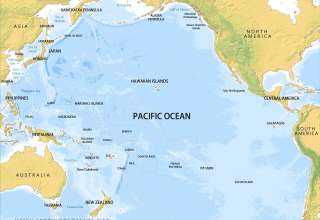by Max Ormond
The current rising inflation and interest rates is crushing the living standards of the overwhelming majority of households in Australia. Above all, it hurts those who live from pay-check to pay-check, where essential commodities like food, energy, housing and transport are crucial for everyday life.
Inflation is a result of the falling value of money, where the prices of goods and services rise. The public are led to believe it is the ‘invisible hand’ of the market place that sets prices. The ‘invisible hand’ is really camouflage for capitalists, the owners of businesses in the economy. They are the ones who in reality set prices for goods and services. Workers, who create value and wealth in a capitalist economy, have no role in price rises other than suffering them.
The mainstream media reports that, “Australia’s inflation rate has jumped to its worst result in more than two decades, spurred on by soaring petrol prices and higher dwelling construction costs.” In the March quarter the Consumer Price Index inflation rate in Australia reached 5.1 per cent.
This rise in the inflation rate has lead to the Reserve Bank of Australia (RBA) to increase the official interest rate from 0.1 per cent to 0.35 per cent, a 0.25 per cent increase. This is the first time in eleven years that interest rates have increased. Australia’s big four banks quickly followed suit and increased the interest rates for their borrowers.
Will the RBA’s hike in interest rates stop inflation? Not likely. Central banks (such as the RBA) have little control over inflation of prices for goods and services in capitalist economies.
The last two years saw a supply chain crisis as a result of the Covid pandemic. This supply shock crisis follows on from the reduction in industrial output, business investment and international trade that started to occur in 2019. An added to this supply shock crisis is the Russian-Ukrainian war which now threatens the harvest of these two leading grain exporters.
Capitalist profitability in the economy has dropped to historic lows. In capitalist economies, it is profitability that essentially drives investment and growth. Therefore, if inflation is being driven by feeble supply as opposed to strong demand, RBA’s monetary policy of raising interest rates won’t work.
The inability of capitalist production to maintain sufficient supply is the cause of current high inflation. For example, used car prices sky-rocketed over the previous two years and contributed to rising inflation. They rose as a result of the Covid pandemic which obstructed new car production and their sales declined.
Now that interest rates have risen and will continue to do so in the near future, it means that workers’ living standards will fall. They will struggle to keep up payments for the essentials of life, many will descend into poverty. Statistics illustrate a frightening reality that confronts many Australians.
University of New South Wales research from last year revealed:
•40% of households were experiencing mortgage stress
•In some parts of the country mortgage stress was as high as 70%
•32% of people renting a house or flat are finding it increasingly difficult to pay their rent.
Anglicare reported this year:
•less than 1% of rentals were affordable for those on income support
•only 2% of workers on the minimum wage could find affordable rental accommodation
•Of the 46,000 rental properties surveyed early this year only 312 places were affordable for aged pensioners; 51 for disability pensioners; 7 for JobSeekers
Shopping for grocery items customers have been confronted with price hikes of 20 per cent. Casual/part-time workers will be pushed over the edge and full-time workers will have difficulties making ends meet. All that the Morrison Coalition government offers is a one-off $250 payment and a short-lived petrol subsidy to buy-off voters for the coming federal elections.
Rising interest rates and inflation will have a rolling effect on the economy and create what has been termed, stagflation. Which means rising inflation, stagnating wages and an economy grinding to a slump.
Under capitalist production it is important to see what is happening to supply, particularly that there is enough productivity (exploitation of labour) to fuel investment and production. The rate of price inflation depends on the growth rate of labour productivity. Workers create value through their production. However, technological innovation decreases the labour time required in the production of goods and services. Consequently, prices over time will tend to fall. Sooner or later, capitalists will invest more in capital equipment and materials than in relation to workers’ labour. This causes the tendency to price deflation under capitalist production.
However, there are counteracting tendencies that affect the prices of goods and services. Under capitalism, the role of money in inflation is important. In today’s capitalist economies, ‘fiat’ money (money that is a unit of account without value i.e. what is called in the mainstream economics vernacular quantitative easing) is created by governments and central banks to save the system from falling over e.g. stop banks from becoming insolvent (2008 Global Financial Crisis); keeping zombie companies in production (their running costs are greater than their income); financial speculators who have access to easy money buying up huge tracts of commodities (such as housing) at low cost to sell later for big profits; and major corporations who receive cheap bank loans buy back their stock and so inflate their stock price etc.
When the money supply is increased and becomes a commodity in itself, it is divorced from production of real goods and services and so debases the currency and will inevitably increase price inflation. The strains in production ( supply shock crisis) will compound the effects of the increase in money supply and will result in diminishing financial returns, increasing danger of defaulting loans, declining growth – in short an economic depression.
Who looses in this capitalist merry-go-round? Workers, of course! Governments can do no more than fiddle unsuccessfully with the system. Capitalism cannot solve its contradictions, only lurch from one crisis to the next. It has reached its use by date and humanity deserves better.






